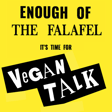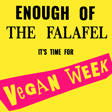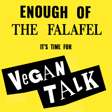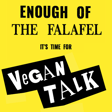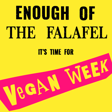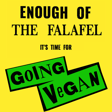
158- Should vegans be 'conscious consumers'?
How do you feel about your new vegan pal, Cynthia, who is into fast fashion, is a Coca Cola shareholder and drives around a 4x4 on the weekends just for fun?
In this episode, Elena, Mark & Ant explore how compassion & ethics interplay with other areas of our lives, away from animal rights. Can you be vegan and not recycle? Does everything you own need to be second hand? And now we think about it, what about you other vegan work colleague, Jeff the Nazi?
As ever, we love hearing your views on the topics under discussion (or anything else!) so do drop us your thoughts via enoughofthefalafel@gmail.com
*************
Enough of the Falafel is a community of people who love keeping on top of the latest news in the world of veganism & animal rights. With the Vegan Talk podcast, we aim to develop listeners' (& our own) thoughts around key issues affecting veganism & the animal rights movement; giving our opinions, whilst staying balanced; remaining true to our vegan ethics, whilst constantly seeking to grow & develop.
Each week we home in on one topic in particular and pick it apart in more detail. If you have a suggestion for a future show, do get in touch via enoughofthefalafel@gmail.com.
*******************
Thanks everyone for listening; give us a rating and drop us a message to say "hi"; it'll make our day!
Elena, Mark & Anthony
